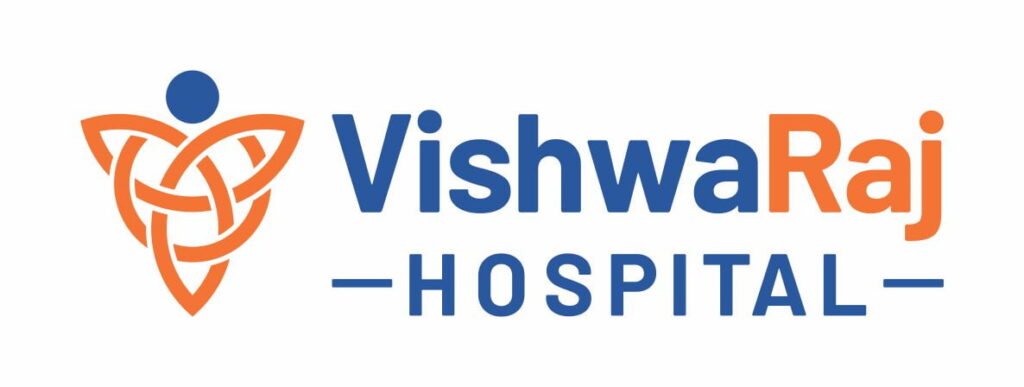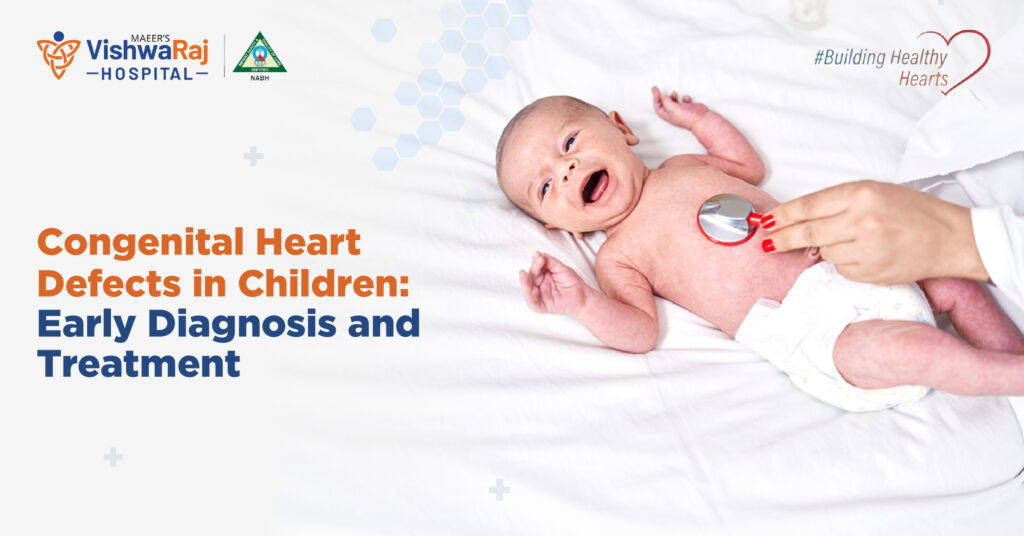Congenital Heart Defects (CHD): Understanding the Condition and Treatment at VishwaRaj Hospital
Congenital heart defects (CHD) are among the most common types of birth defects, affecting approximately 1 in 100 children globally. These heart abnormalities develop when the heart or blood vessels near the heart do not form correctly during fetal development. While some CHDs are mild and may require minimal treatment, others are severe and life-threatening, demanding immediate medical attention.
Thankfully, advancements in pediatric cardiology in Pune and worldwide have significantly improved early diagnosis and treatment options for children with CHD. At VishwaRaj Hospital, we are dedicated to providing exceptional care to children with heart conditions, helping them achieve a better quality of life.
What are Congenital Heart Defects?
Congenital heart defects are structural abnormalities in the heart that occur before birth. These defects may impact the heart’s walls, valves, or blood vessels, leading to a variety of complications. The severity of these conditions varies—some may not require any treatment, while others can lead to congenital heart failure if left untreated.
Common Types of Congenital Heart Defects:
- Atrial Septal Defect (ASD): A hole in the wall between the heart’s upper chambers (atria). Small ASDs may close naturally, but larger ones may need surgery.
- Ventricular Septal Defect (VSD): A hole between the heart’s lower chambers (ventricles), which can lead to complications such as heart failure if untreated.
- Tetralogy of Fallot: A combination of four defects that reduce oxygen in the blood, causing cyanosis (bluish skin). It requires surgical repair.
- Patent Ductus Arteriosus (PDA): A vessel that fails to close after birth, which can lead to heart failure.
- Coarctation of the Aorta: A narrowing of the aorta, potentially leading to high blood pressure and requiring surgical intervention.
- Hypoplastic Left Heart Syndrome (HLHS): A severe defect in which the left side of the heart is underdeveloped, often requiring multiple surgeries or a heart transplant.
Causes and Risk Factors of Congenital Heart Defects
While the exact causes of congenital heart defects are often unknown, certain factors can increase the risk:
- Genetic Factors: A family history of heart defects or genetic syndromes like Down syndrome increases the risk.
- Maternal Health Conditions: Conditions such as diabetes, obesity, or lupus in the mother can raise the risk of heart defects in the baby.
- Environmental Factors: Exposure to alcohol, drugs, or certain medications during pregnancy can increase the risk of CHD.
- Infections During Pregnancy: Viral infections like rubella can lead to congenital heart abnormalities.
Early Diagnosis of Congenital Heart Defects
Early detection is crucial for effective treatment. Many congenital heart defects are diagnosed before birth through routine prenatal ultrasounds. A fetal echocardiogram may be recommended for a more detailed examination of the baby’s heart. After birth, severe CHDs are often identified quickly through symptoms like cyanosis, rapid breathing, or poor feeding.
Diagnostic tools available at VishwaRaj Hospital’s Pediatric Cardiology department include:
– Echocardiogram for imaging the heart’s structure.
– Electrocardiogram (ECG) to measure the heart’s electrical activity.
– Chest X-rays to evaluate heart size and shape.
– Pulse Oximetry to measure blood oxygen levels.
Treatment Options for Congenital Heart Defects at VishwaRaj Hospital
The treatment for congenital heart defects depends on the type and severity of the condition. At VishwaRaj Hospital, we provide a wide range of treatment options, ensuring personalized and comprehensive care for each child.
Medications:
Certain medications can help manage symptoms or prevent complications, including:
– Diuretics to reduce fluid buildup and ease the heart’s workload.
– ACE inhibitors or beta-blockers to manage blood pressure and heart function.
– Anticoagulants to prevent blood clots.
Catheter-based Procedures:
Minimally invasive procedures using catheters can treat some heart defects without open-heart surgery. These include:
– Balloon Angioplasty to widen narrowed vessels.
– Stenting to keep arteries open.
– Device Closure to repair holes like ASD or VSD.
Surgery:
For more severe heart defects, surgical intervention may be necessary. Options include:
– Open-heart surgery to repair or replace heart structures.
– Palliative surgery to temporarily improve heart function in severe cases.
Heart Transplant:
In complex cases where repair is not possible, a heart transplant may be the best solution.
Ongoing Care and Monitoring
Children with congenital heart disease often require lifelong care, even after successful treatment. Regular follow-ups with a pediatric cardiologist are essential to monitor the heart’s function and address any complications. At VishwaRaj Hospital, we provide continuous support for children and their families, ensuring the best long-term outcomes.
Why Choose VishwaRaj Hospital for Pediatric Cardiology in Pune?
At VishwaRaj Hospital, our team of expert pediatric cardiologists and cardiac surgeons are committed to providing the highest quality care. With advanced diagnostic and treatment technologies, we ensure that each child receives personalized, compassionate care. We understand the emotional impact of a CHD diagnosis, and our multidisciplinary team is here to support families every step of the way.
Conclusion
Congenital heart defects are serious, but with early diagnosis and appropriate treatment, many children can live healthy, active lives. At VishwaRaj Hospital, we are dedicated to offering the best care for children with congenital heart defects. If you suspect your child may have a heart condition or are looking for expert pediatric cardiology services in Pune, contact us for a consultation.
Take the first step towards stronger bones and a healthier future today.
For more details, call us on 8886-606060 or visit www.vishwarajhospital.com




